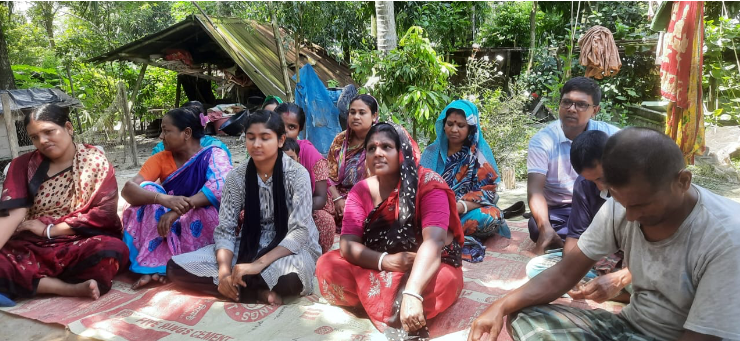Four New Churches in Bangladesh
This month (August 2024), we saw four churches started in the country of Bangladesh. I praise God for this growth and how people are responding to the gospel. It also got me thinking about how starting churches in Bangladesh presents both opportunities and challenges, influenced by the country’s predominantly Muslim population and its unique socio-cultural dynamics.
One of the primary opportunities is the strong community and social network that churches can foster. By focusing on community development, education, and healthcare, new churches can serve as beacons of positive change and support for local populations. Church activities that address social needs can help integrate the church into the community and foster goodwill. Effective outreach often includes collaboration with local organizations and engaging in interfaith dialogue to build mutual understanding and respect.
However, starting churches in Bangladesh requires navigating a complex landscape of religious and cultural sensitivities. The minority Christian community faces occasional scrutiny and skepticism from some segments of society. Prospective church planters and missionaries need to be aware of local customs and regulations, working within the framework of religious freedom that Bangladesh provides. Building relationships with local leaders and authorities are crucial in gaining support and ensuring that the establishment of a new church aligns with both legal requirements and community expectations. It’s also essential to approach the process with a spirit of humility and respect for the existing religious and cultural fabric.
Moreover, sustainability and long-term impact are key considerations for starting churches in Bangladesh. Establishing a church involves not just the physical building but also the nurturing of a vibrant, self-sustaining community. This includes recruiting and training local leaders, creating programs that address both spiritual and practical needs, and fostering a sense of ownership among congregants. Effective churches often focus on creating spaces for worship and community service, which can attract diverse participants and contribute positively to the local society. By emphasizing service and engagement, new churches can become valuable assets in their communities, promoting tolerance and understanding while fulfilling their mission.
In summary, focus must be made on making disciples of Jesus Christ and not just converts. Thriving churches will have local leaders who are respected by the wider community, who will not stray from biblical truth, and will shepherd their people with a heart of humility and love. As we look toward church multiplication in Bangladesh, join us in prayer for local leaders.
Dr. Breckenridge L. Merkle
One of the primary opportunities is the strong community and social network that churches can foster. By focusing on community development, education, and healthcare, new churches can serve as beacons of positive change and support for local populations. Church activities that address social needs can help integrate the church into the community and foster goodwill. Effective outreach often includes collaboration with local organizations and engaging in interfaith dialogue to build mutual understanding and respect.
However, starting churches in Bangladesh requires navigating a complex landscape of religious and cultural sensitivities. The minority Christian community faces occasional scrutiny and skepticism from some segments of society. Prospective church planters and missionaries need to be aware of local customs and regulations, working within the framework of religious freedom that Bangladesh provides. Building relationships with local leaders and authorities are crucial in gaining support and ensuring that the establishment of a new church aligns with both legal requirements and community expectations. It’s also essential to approach the process with a spirit of humility and respect for the existing religious and cultural fabric.
Moreover, sustainability and long-term impact are key considerations for starting churches in Bangladesh. Establishing a church involves not just the physical building but also the nurturing of a vibrant, self-sustaining community. This includes recruiting and training local leaders, creating programs that address both spiritual and practical needs, and fostering a sense of ownership among congregants. Effective churches often focus on creating spaces for worship and community service, which can attract diverse participants and contribute positively to the local society. By emphasizing service and engagement, new churches can become valuable assets in their communities, promoting tolerance and understanding while fulfilling their mission.
In summary, focus must be made on making disciples of Jesus Christ and not just converts. Thriving churches will have local leaders who are respected by the wider community, who will not stray from biblical truth, and will shepherd their people with a heart of humility and love. As we look toward church multiplication in Bangladesh, join us in prayer for local leaders.
Dr. Breckenridge L. Merkle


